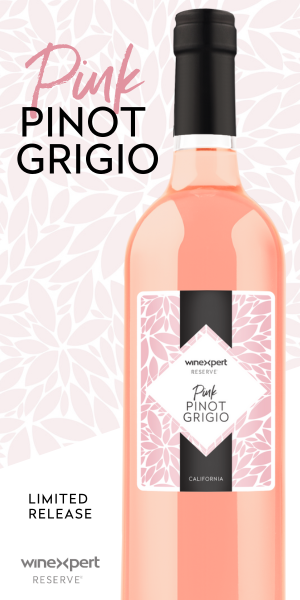What would you recommend to make my wine clear, please?
Clarifying elderflower wine
Q: I made some elderflower wine last year and have now decanted it into bottles. It is very cloudy. What would you recommend to make it clear, please?
— Huw M. Edwards • via email
A: Hmmmm. As long as it is not fermenting and is stable other than being cloudy, it sounds like you need either an enzyme, a fining agent or some combination of the two.
Since you’ve got your wine all conveniently bottled up, my advice is to take three or four bottles and use them as “bench trial” experiments so you can get an idea of what would be the best for this particular wine. Even professionals do this so we can try something out on a teeny bit of the wine before subjecting the whole batch (and our wallet) to a treatment.
It sounds like you might especially have some challenges because of the non-grape nature of your wine. Grapes are the winemaking fruit of choice because they have the most favorable natural balance of sugar, acids, tannins, proteins, flavor and aroma compounds of any fruit in existence. Their innate chemistry naturally produces with the greatest reliability a tasty, sound and stable product without too many (knock on wood) headaches or hassles for winemakers. Start branching out into things like banana wine or rose petal mead and you start venturing off into what I call “interventionist territory” where as a winemaker you’re going to have to add things, subtract things and, in general, tweak things in order to end up with a bottle of something tasty, ageable and stable enough to be called wine.
The first thing I would suggest you try is an enzyme. Enzymes are actually proteins, usually harvested from fungi or mold like Aspergillus niger and packaged in a concentrated form for use in winemaking, brewing and other fun food processes. My favorite workhorse enzyme is one called “KS” (which stands for “kitchen sink”) from Scott Labs. KS has an amazing ability to be able to chew through stubborn hazes, slimy clouds and unsettle-able turbidity and I’ve used it to settle out cloudiness in fruit wines too, with great success. Try dosing it in at the rate of 0.2–0.3 mL/gallon (I don’t know how big your bottles are, so you’ll have to approximate) and let the bottle sit 12–24 hours. If you see good settling of your haze, you know that’s the answer.
Sometimes just using a fining agent that hooks onto proteins, like bentonite, will work. Read the directions on whatever brand you buy, but I tend to add around 1–2 g/gallon. If your haziness is not caused by a protein then you’ll have to explore other options like colloidal silica (like brand-name Siligel) or polysaccharide/
diatomaceous earth mix (like Sparkalloid). These kinds of products, when used in the right doses (the manufacturer should have this information) can work wonders.
And sometimes it takes a one-two punch. You might try the bentonite first to see if that does it (it’s pretty gentle) and then progress on to the more activated agents like the enzymes and the specialized fining agents. Sometimes even we professional winemakers have to just throw something at the wall to see what sticks. Remember to always read product instructions and be sure you understand any interactions between any products you use. There are many enzymatic products that become ineffective or yield unexpected results when interacting with fining agents, such as bentonite.


